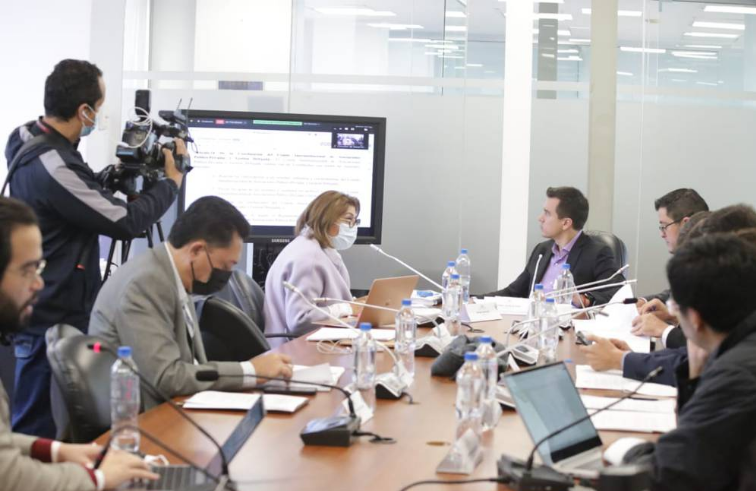On the night of March 8, the Economic Development Commission approved the report for the first debate of the investment bill.
Commission approved report for the first debate of the Investment Law with changes in the delegation, free zones, and other aspects

The legislative table resolved that the delegations do not become privatizations and that the free zones be exclusive for new investments. After a week of receiving proposals and analyzing the content of the bill for the Attraction of Investments, promoted by the Government, on the night of Tuesday, March 8, the Economic Development Commission approved, with eight votes in favor and one against, the report for the first debate of the norm in the plenary session of the Assembly.
Among the main changes incorporated by the legislative table are points related to the delegation of strategic sectors or public services, and the creation of free zones. On the issue of a delegation to a private agent, it was resolved that the mechanism applies exceptionally when the State does not have the capacity to cover the demand, either in technical or economic aspects.
Assemblywoman Wilma Andrade explained that an express prohibition was left so that the delegation did not end up in privatization or transfer of ownership for the benefit of the private provider. Likewise, the Commission put a lock to avoid the collection of fees, tariffs, contributions, or values when a private operator takes charge of the construction or administration of a public service that is free. This encompasses the health, education, security, and justice sectors.

As for the free zones, the assembly members decided to maintain the 20-year period for their use. However, it was incorporated that this benefit is exclusive for new investments. In addition, the free zones will not only be constituted in territorial spaces but also real estate -such as buildings- that are strategic for the activities of investors may be declared as such.
On another issue, the confidentiality clauses proposed in the original bill on contracts that the State signs with the private sector were removed. The president of the Commission, Daniel Noboa, acknowledged that the rule “is full of incentives” through tax reduction. However, he pointed out that this conflicts with the wealth tax created in the Economic Development Law, because it “removes the flow” of resources from investors, which is why he insisted that the tax be repealed in the project that is now being discussed.

César Rohon also requested that a part of the Economic Development Law be repealed, in relation to the payment of capital gains, because it would be generating “double taxation” for the construction sector. Nathalie Arias rejected the pretensions of repeals, she maintained that the assembly members cannot introduce modifications in tax matters, since it is a competence of the President of the Republic.
For this Wednesday, the Economic Development Commission plans to deliver the report signed by the nine assembly members to the president of the Assembly, Guadalupe Lori. If that same day Lori decides to call the plenary for the first debate, the discussion of the bill could take place on Friday, March 11, since the calls must be made 48 hours in advance.

